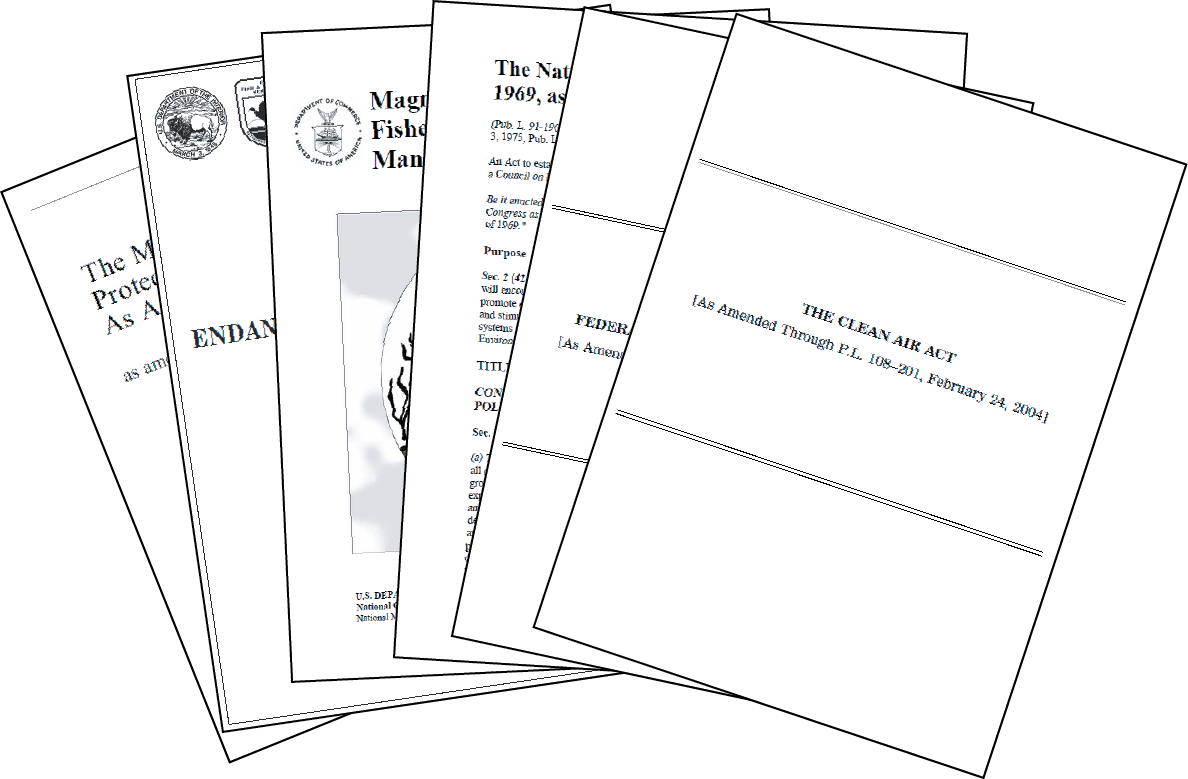We seek to identify the existing legal, regulatory, and policy vehicles that will enable management-uptake of tipping point science

Big Picture
To accelerate the transition from the review of ecological tipping points towards practical recommendations for managers, we are identifying the existing U.S. legal and policy language that enables threshold-based management decisions. We aim to illustrate how the latest science can be translated into meaningful and tractable management measures.

Why we are doing it
Without understanding the limitations of a manager’s enabling authority and jurisdiction, we run the risk of making threshold-based management recommendations that are outside that manager’s scope of authority. This analysis is therefore necessary to determine whether and how our target management audience can legally use tipping point-based management tools under existing law, and how those enabling laws make management systems more responsive to ecosystem state changes.
How we are doing it
We began by reviewing primary federal environmental laws to identify how they can (or already do) facilitate the incorporation of tipping points into management decisions (e.g., Clean Water Act, Clean Air Act, Endangered Species Act). We used the analyzed laws and policies as examples for how thresholds can be used as effective and efficient management targets in a variety of coastal and marine decision-making contexts.
What we are discovering
This review began in June 2013, and we published our results in 2014.
Kelly et al. 2014. How Not to Fall Off a Cliff, or, Using Tipping Points to Improve Environmental Management. Ecology Law Quarterly 41:843-886
Outcomes
We have developed a narrative assessment of legal and policy trends and notable examples of enabling legislation. Though this analysis was focused on U.S. law, we anticipate that some of our research findings will be transferable to other countries and management settings.
 Building Blocks
Building Blocks
This work builds upon the tipping points Management Review by deeply exploring the legal and policy context for the successful U.S.-based case studies identified by that review. It also serves as a foundation for other grant outcomes and future work by providing an overview of the U.S. laws and policies available to facilitate threshold-based management in the real world. Our partners in the Hawaii and Haida Gwaii case study will complement this work by reviewing existing and potential legal vehicles for threshold-based management in Hawai‘i and Canada.
Leads
Ashley Erickson and Ryan Kelly
Project Completion
June 2014
Learn more about our other Research Activities with the Ocean Tipping Points project.
